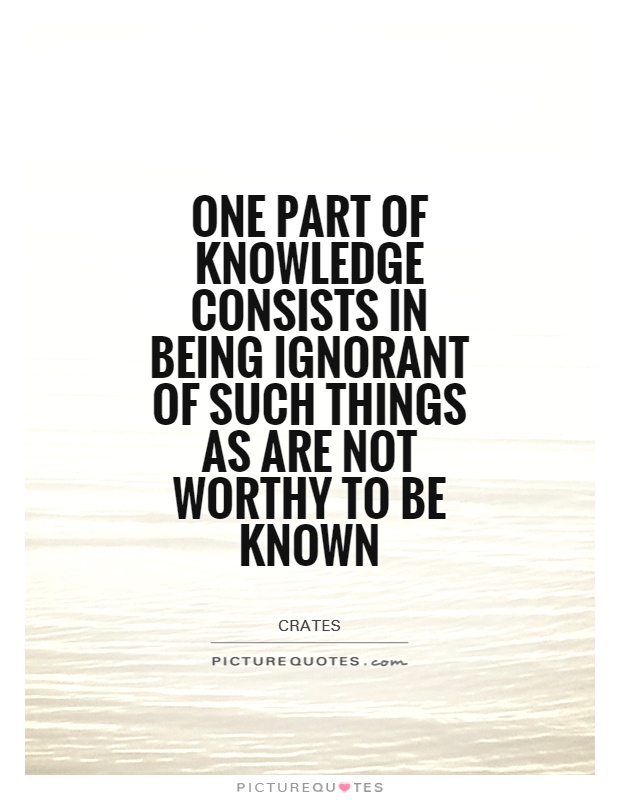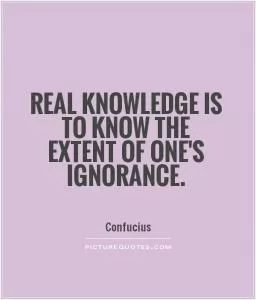One part of knowledge consists in being ignorant of such things as are not worthy to be known

One part of knowledge consists in being ignorant of such things as are not worthy to be known
Crates of Thebes, a Greek philosopher of the 4th century BC, is often credited with the quote, “One part of knowledge consists in being ignorant of such things as are not worthy to be known.” This statement reflects Crates’ belief in the importance of discerning what is truly valuable and worth pursuing in terms of knowledge and wisdom.In the context of Crates’ philosophy, being ignorant of things that are not worthy to be known does not mean being uninformed or lacking knowledge altogether. Instead, it suggests a deliberate choice to focus on acquiring knowledge that is meaningful, relevant, and beneficial. Crates believed that true wisdom comes from understanding what is truly important and essential in life, rather than being distracted by trivial or superficial matters.
For Crates, the pursuit of knowledge was not simply about accumulating facts or information, but about seeking a deeper understanding of the world and one’s place in it. He believed that by focusing on what is truly valuable and worthy of attention, individuals could cultivate a more meaningful and fulfilling life.
In practical terms, being ignorant of things that are not worthy to be known could mean prioritizing learning about ethics, morality, and philosophy over trivial gossip or superficial trends. It could also involve questioning societal norms and values, and seeking out knowledge that challenges conventional wisdom.
Crates’ philosophy of knowledge aligns with the broader Stoic tradition, which emphasizes the importance of virtue, self-discipline, and living in harmony with nature. By being selective about what we choose to learn and focus on, we can cultivate a deeper understanding of ourselves and the world around us.












 Friendship Quotes
Friendship Quotes Love Quotes
Love Quotes Life Quotes
Life Quotes Funny Quotes
Funny Quotes Motivational Quotes
Motivational Quotes Inspirational Quotes
Inspirational Quotes